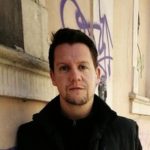Victoria Ten (Jeon Yeonhwa) (Leiden)
29 March 2019
In 1980s Korea, industrial growth led to rising concerns with personal health and self-improvement. This middle class trend to “better” living is connected to the pursuit of “nature”, invented and constructed to counterpoise pollution and urbanization. This trend found its expression in the rise of ki suryŏn (氣修鍊, training related to ki, i.e. “life energy”), a newly invented tradition of internal alchemy which includes practices for achieving immortality. In ki suryŏn “nature” indicates mountains, the dwelling place of mountain immortals. Ki suryŏn retreats are often organized in the mountains.
East Asian practices of internal alchemy come from ancient times and are techniques related to ki. These techniques are grounded in physiological, psychological and behavioural principles. They include gymnastics, massage, breathing, sexual hygiene, diet, healing, meditation and Visualization, as well as rules of daily behavior. In contemporary South Korea, practices of ki suryŏn have been integrated into the routine of urban daily life. Thus, to study ki suryŏn culture involves investigating the way urbanites live and relate to each other. The training sites where practitioners come together create opportunities for improving social status by getting to know people of higher standing — a striving for status encouraged by the competitive demands of modern society.
Ki suryŏn is supposed to lead to harmonization of the mind-body and actualization of hidden potential of an individual in the context of a union with the universe. Ki suryŏn groups focus on bodily practice, while selectively appropriating elements of various Korean religious traditions. As part of popular culture, the cosmology and values of ki suryŏn are interiorized in South Korean society through internet computer games, animation and films. Ki suryŏn groups generally seem to be growing — though exact statistics are difficult to obtain — and the terms ki and ki suryŏn are among the vital key words of contemporary Korean culture.
Victoria TEN (Yeonhwa Jeon) was born in Saint Petersburg, Russia. She holds a Bachelor of Laws from the Hebrew University of Jerusalem. In Israel, she worked as a lawyer at the Ministry of Justice. In 2010 she earned an MA in Korean Philosophy at Sungkyunkwan University, Seoul, South Korea, with a thesis on the mediaeval Korean thinker Hwadam Sŏ Kyŏngtŏk. In 2017, she received her PhD at LIAS, Leiden University, the Netherlands, with a thesis on practices of self-cultivation in contemporary Korea. She published a number of articles on ki suryŏn and GiCheon, and for many years has been herself a GiCheon teacher. Her new book New Goddesses on Mt. Paektu: Gender, Myth and Transformation in Korean Landscapes (co-authored with Robert Winstanley-Chesters) is under contract and due for publication in 2019. Victoria currently combines her academic research at Leiden University, the Netherlands, with working as a Paralegal at Freshfields Bruckhaus Deringer, UK.


